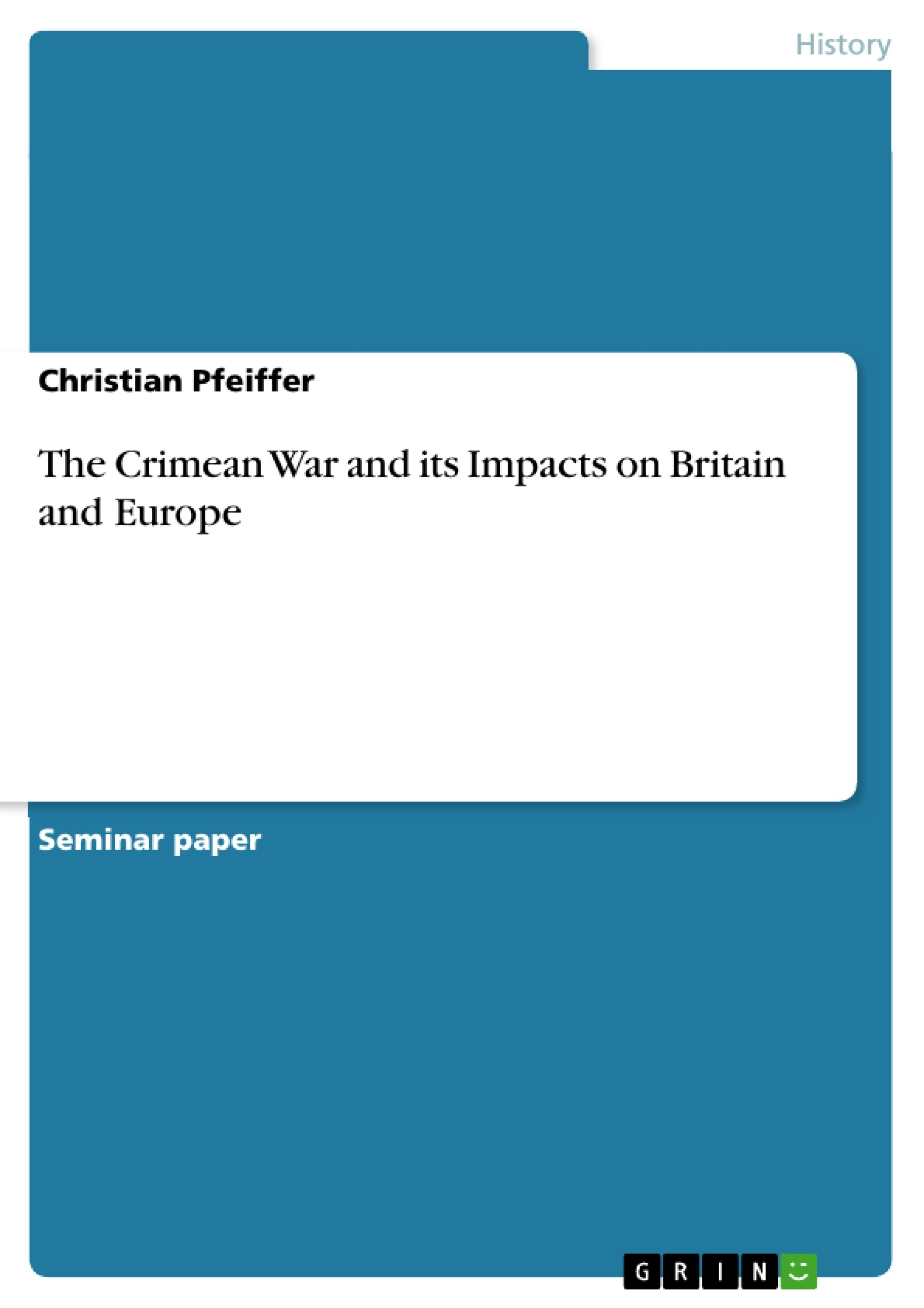Historians consider the Crimean War from 1854 to 1856 as the turning point in the politics of the great European powers in the 19th century. This research paper examines why and how this war happened and what the consequences were for Europe and especially for the foreign policy of Britain. It is driven by the thesis that the Crimean War was changing the policies of the European powers significantly to a new aggressive behaviour.
Therefore it is divided into three chapters. The first chapter deals with the question why the Crimean War broke out and how Britain became involved. Chapter II discusses the main events in the war. It does not look only on Britain’s policies, but also focuses on Austria-Hungary which played a key role in the war. The third and last chapter shows how the war affected the policies of the European powers. Especially the impacts on the British Empire are pointed out. This research paper is based on a comprehensive bibliography containing primary and secondary sources and a scientific article on the topic.
The majors works used for this paper are David Wetzel’s The Crimean War and Paul W. Schroeder’s Austria, Great Britain and the Crimean War. 1 David Wetzel. The Crimean War: A Diplomatic History. (New York: Columbia University Press, 1985), p. v. 2 Paul W. Schroeder. Austria, Great Britain and the Crimean War: The Destruction of the European Concert. (Ithaca and London: Cornell University Press, 1972), p. xi. 3 This research paper is written in the course „British History of the 19th and 20th Centuries” at Vesalius College Brussels. Therefore it will have a focus in all chapters on British opinion, policy and impacts of the British Empire.
Table of Contents
- INTRODUCTION
- 1. ROAD TO PERDITION: FROM THE DISPUTE OVER THE HOLY PLACES TO THE ULTIMATUM BY BRITAIN AND FRANCE TO RUSSIA (1852 - 1854)
- 2. THE WAR IN THE CRIMEA (1854 - 1856)
- 3. THE IMPACTS OF THE CRIMEAN WAR ON EUROPE AND BRITAIN'S NEW ISOLATIONIST POLICY
Objectives and Key Themes
This research paper examines the Crimean War, its causes, and its consequences for Europe, particularly Britain's foreign policy. It argues that the war significantly altered the European powers' policies, leading to a more aggressive approach.
- The origins and outbreak of the Crimean War
- The impact of the war on Britain's foreign policy
- The role of Austria-Hungary in the Crimean War
- The consequences of the war for the European powers
- The impact of the war on the British Empire
Chapter Summaries
Chapter 1 delves into the causes of the Crimean War, exploring the dispute over the Holy Places in Palestine and Britain's involvement in the conflict. It highlights Britain's strategic interests in the Ottoman Empire and the growing tensions with Russia.
Chapter 2 examines the key events of the Crimean War, focusing on the role of Austria-Hungary. This chapter provides a detailed overview of the war's progression and the strategies employed by the involved powers.
Chapter 3 discusses the consequences of the war on the European powers, particularly the impact on Britain's foreign policy. It explores Britain's shift towards isolationism and the implications for its role in European affairs.
Keywords
This research paper focuses on the Crimean War, European diplomacy, British foreign policy, Ottoman Empire, Russia, Austria-Hungary, isolationism, Eastern Question, Holy Places, and the Treaty of Kutchuk Kainardji.
- Quote paper
- Christian Pfeiffer (Author), 2005, The Crimean War and its Impacts on Britain and Europe, Munich, GRIN Verlag, https://www.grin.com/document/36672




